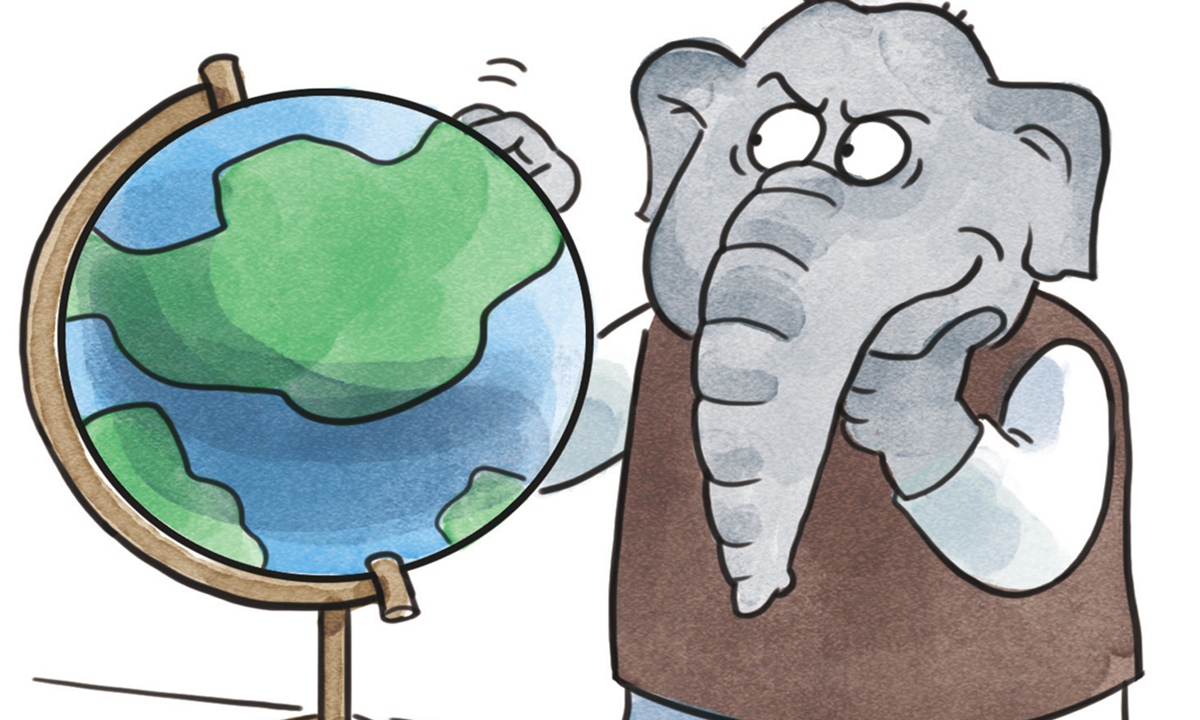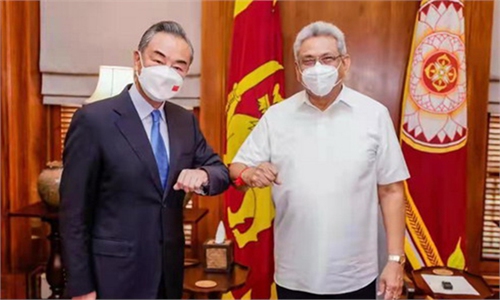COMMENTS / EXPERT ASSESSMENT
Biz Quick Take: India shouldn’t treat China-Sri Lanka cooperation as its loss

Illustration: Liu Rui/GT
Economic cooperation between China and Sri Lanka has made headlines lately, after Sri Lanka asked for China's help on its debt restructuring. A spokesperson for China's Ministry of Foreign Affairs said earlier this week that China will continue to provide assistance to Sri Lanka's economic and social development to the best of its capacity, when commenting on the issue of "Sri Lanka's debt restructuring."However, it seems that mutually beneficial economic cooperation between China and Sri Lanka has made some people in Sri Lanka's neighboring country India anxious and fearful. They feel growing cooperation between China and Sri Lanka is a loss for India, which traditionally treats Sri Lanka as part of its sphere of influence.
In a Foreign Policy magazine article, India journalist C. Raja Mohan warned that "China's two-ocean strategy puts India in a pincer." Another article on the Indian news site theprint.in said that "New Delhi will be watching with an eagle eye," as the Chinese Foreign Minister visits "a bunch of Indian Ocean states." It suggested that an India-led QUAD rescue Sri Lanka from its "Made in China" crisis.
India indeed is watching closely, but unfortunately, with the wrong lens that makes many in the country so shortsighted that they cannot see the benefits of cooperation between China and its neighbors. That also makes them over-confident over where the country is.
For example, since when India is leading the QUAD? How can the QUAD - a US-led geopolitical tool in the Indo-Pacific on security issues - provide real economic support for Sri Lanka to endure current temporary difficulties?
It's China that has been providing concrete assistance to Sri Lanka's economic development, and China has made the same commitment amid the South Asia country's current economic test. On the contrary, India has always viewed China-Sri Lanka economic cooperation from the perspective of a geopolitical game. New Delhi insistently views normal economic cooperation between China and Sri Lanka as a strategic loss, which is completely wrong.
In fact, China's assistance to Sri Lanka could also benefit India's economy in many ways. Sri Lanka is a close neighbor of India and is very close to India economically. Therefore, Sri Lanka's economic development is beneficial to India. Conversely, an economic crisis in Sri Lanka will also hurt India's economy.
Putting aside political differences, there still remain many opportunities for cooperation among China, India and Sri Lanka. China and India can jointly help Sri Lanka develop its economy, which will also help enhance cooperation and trust between China and India.
That's also true for India's other neighbors. For instance, Nepal, which had long relied on importing electricity from India, last November for the first time sold hydropower to India, amid a reported acute power shortage following the impact of COVID-19. And it was Chinese investments in Nepal's hydropower sector help it realize this important milestone. The country needs both Chinese investment and the Indian market to tap the full potential of its hydropower sector.
India is a major power in South Asia and is still one of the fastest growing economies in the world. No one is denying that; however, how many in India think and behave is not befitting the status of a major power. They need to take a long view of where India's national interest really lies in the long term and act accordingly. Blindly following the US geopolitical games and relentless pursuing a confrontational approach toward China are definitely not in its interests.

